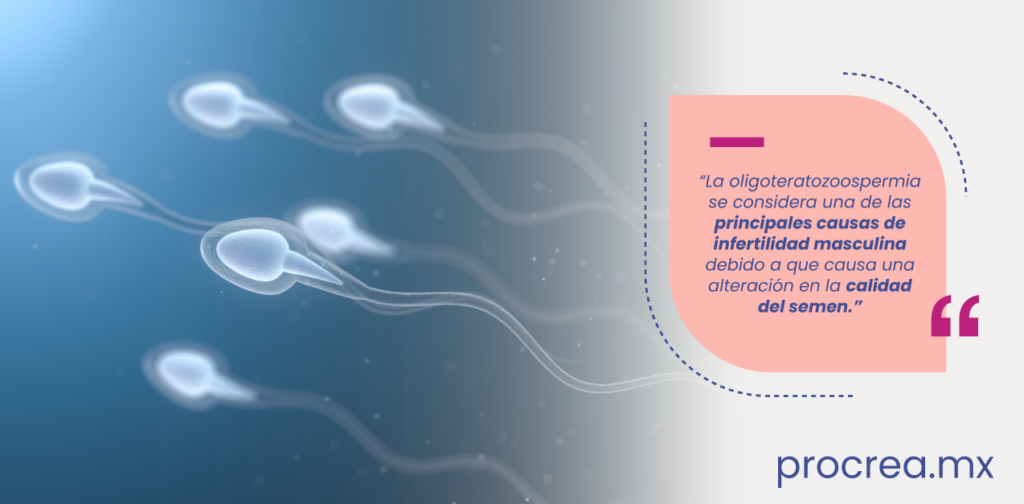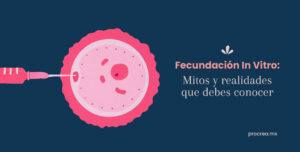The Oligoteratozoospermia is considered one of the leading causes of male infertility, as it leads to a disruption in the quality of semen. Here, we'll explain more about this condition and how it affects the process of achieving pregnancy.
What is Oligoteratozoospermia?
This condition is characterized by two abnormalities: the first one affects the concentration of semen, resulting in a decrease in sperm presence. There should be approximately 15 million sperm per milliliter of semen, and if there are fewer, it may indicate this condition. The second abnormality affects the morphology of sperm, meaning that sperm have structural deformities that affect their mobility.
Causes
It is challenging to determine the exact cause of oligoteratozoospermia ; however, it can result from various factors. These may include hormonal imbalances or infectious conditions during the formation of male gametes (spermatogenesis). Certain medications or substances can also alter sperm concentration, shape, or mobility, such as antidepressants or treatments like chemotherapy. Lifestyle plays a crucial role in semen quality, so it is recommended to have a healthy diet, engage in regular exercise, and avoid toxic substances.
In most cases, men become aware of their conditio Oligoteratozoospermia when they decide to become parents and face difficulties achieving pregnancy. Therefore, it is essential to seek regular medical evaluation from a specialist.
is diagnosed through a semen analysis , known as a semen analysis or seminogram. This test assesses sperm quantity, mobility, and morphology, providing insights into male fertility.
Is Pregnancy Possible?
To achieve pregnancy, it's important to have good-quality sperm. If oligoteratozoospermia is diagnosed, natural conception may be challenging. Therefore, some couples opt for assisted reproduction , with the most recommended treatment being In Vitro Fertilization (IVF) with Intracytoplasmic Sperm Injection (ICSI). This procedure involves selecting the best sperm and injecting them directly into the egg using a fine needle, aiming to create a high-quality embryo. Once the embryo is obtained, it is transferred to the uterus for development. One of the advantages of this technique is its high success rate.
An accurate diagnosis by a specialist in Reproduction Biology is essential to receive the right treatment. At Procrea, we have a highly experienced medical team that can help answer your questions and provide the appropriate diagnostic tests for Oligoteratozoospermia. Feel free to reach out to us, and we'll be happy to support you through this journey.















